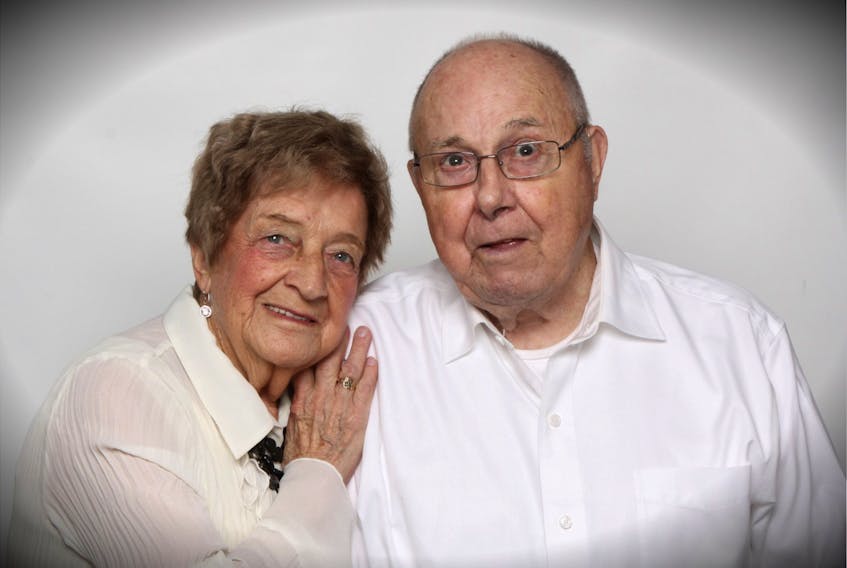Her husband was her entire world and Irene McCabe wanted nothing more than to be with the Second World War veteran in her final days.
They had been married seven decades but separated for the last five years since John McCabe was provided a bed in Camp Hill Veterans Memorial Hospital in Halifax. But without fail she would make the weekly trip to Halifax from her Truro home to be with him.
“She would tear up every day that she was leaving him at Camp Hill,” recalled the couple’s son Paul McCabe. “The departure was so difficult for her.”
Irene died on May 28 in Truro, just shy of her 90th birthday with her husband in Halifax. Since last fall the pair had been on a waiting list for beds at Wynn Park Villa in Truro but none became available.
Despite there being empty beds at Camp Hill, Irene didn’t have the option of moving in because Veterans Affairs won’t permit it. Veteran’s spouses aren’t allowed to live at the facility even if they’ve been approved for long-term care.
“Trying to negotiate all this bureaucracy took so long and my mother passed away before we accomplished the objective of getting them back together,” said McCabe. “The policies are so rigid and I think it’s tragic that the government couldn’t have been more flexible in interpreting the guidelines.”
His mother was actually hospitalized about a month ago after falling at her residence. She suffered a stroke soon after and her condition steadily deteriorated. McCabe’s father has dementia and never got to see his wife during the ordeal. His dad wasn’t in the state of mind to provide the emotional and physical support that Irene needed.
“We understand the desire for couples to be able to live together, whether in their own homes or in long-term care facilities. Decisions regarding the use of long-term care beds for spouses or other provincial residents in Nova Scotia fall within the purview of the Department of Health and Wellness."
-Veterans Affairs spokesman Alex Wellstead
Veterans Affairs currently covers the majority of the living costs for 174 Second World War and Korean War veterans currently living in long-term care facilities in Nova Scotia. McCabe is speaking out in the hopes that the department will work out a plan with the province to ensure any of the veterans who want to be with their spouses can be.
“There are others that are older than my father and time is marching on and in my mom’s case we’ve missed an opportunity. In her last month of life she never got to see him again.”
But it doesn’t appear that such a plan is in the works. Veterans Affairs spokesman Alex Wellstead said the department works with provincial authorities to try to ensure couples can live together but that responsibility ultimately lies with the province’s Department of Health.
“We understand the desire for couples to be able to live together, whether in their own homes or in long-term care facilities,” said Wellstead. “Decisions regarding the use of long-term care beds for spouses or other provincial residents in Nova Scotia fall within the purview of the Department of Health and Wellness."
Carla Adams, spokeswoman for the Nova Scotia Health Authority, put the responsibility on Veterans Affairs, saying the authority can place veterans in Department of Health-funded beds but cannot place spouses of veterans in Veterans Affairs beds.
Veterans advocate Sean Bruyea, who’s also a former Royal Canadian Air Force intelligence officer, called the situation “fundamentally wrong on so many levels” and laid most of the blame on Veterans Affairs.
“It shows a callous and cruel insensitivity based solely upon a laziness and an unwillingness to spend money for the very veterans that the government keeps saying they care about,” he said.
RELATED









